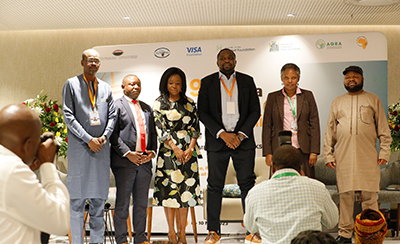
Thinks tanks play a supporting role in providing evidence-based research policy analysis and guidance for the effective implementation of the Africa Continental Free Trade Agreement (AfCFTA), key African leaders of the think tank community have said.
In a round table plenary of the recently held 9th edition of the Africa Think Tank Summit in Zambia between the 8th and 10th of November 2023, five key leaders of African think tanks concurred that AfCFTA implementation provides a platform for think tanks and governments to collaborate.
The round table comprised of Mr Garba Abdoulahi; Coordinator, Cellule d’Analyse des Politiques publiques et d’Evaluation de l’action Gouvernementale (CAPEG) based in Niger; Mrs. Odilia Gnassingbé; Executive Director, CADERDT in Togo; Dr. Rose Ngugi; Executive Director, the Kenya Institute of Public Policy Research and Analysis (KIPPRA) in Kenya; Dr. Briggs Bomba Programs Director TrustAfrica based in Senegal and Mr. Sydney Mwamba, Executive Director, Policy Monitoring and Research Centre (PMRC) in Zambia.
Dr Rose Ngugi said think tanks were knowledge hubs which should take a deliberate move and invest in making stakeholders and citizens understand what AfCFTA was all about. The KIPRA director also said think tanks were supposed to generate knowledge, share and interpret laws, rules and policies required of stakeholders.
“There is need to work together in the monitoring platform by putting together tools for monitoring the implementation both at the local and regional levels. It is at the think tank level that we can start identifying the key indicators that we can put into the platform and see how we deal with the policy surveillance on things that are emerging, actions that have been taken, new trends that are coming up and all these things will help support the policy makers in monitoring the national implementation process both at the national and regional level,” said Ngugi.
Mr Garba Abdoulahi said think tanks were laboratories for new ideas and innovations as they inform the public input on public policies. He also said think tanks were crucial platforms for dialogue because they were the intersections between world politics, the media and civil society.
“There is need to adopt different approaches of think tanks as they provide analysis and evidence and come out with recommendations for different players and the public,” said Abdoulahi.
Mrs. Odilia Gnassingbe complemented Abdoulahi's observation, reiterating that think tanks were very critical in the implementation of the AfCFTA, especially for the private sector which she said was very limited in the input and consultation processes of the AfCFTA.
“A study carried out by the Pan-African Private Sector Trade and Investment Committee (PAFTRAC) in 2023 show that 85% of private sector do not have information pertaining to the AfCFTA and this shows why think tanks are very important in the providence of information,” said Gnassingbé.
Programs Director for TrustAfrica Dr Briggs Bomba said there was a need for evidence-based advocacy and policy-making on the continent because most of the time, knowledge used in Africa was generated from an alien context of African requirements.
“Knowledge institutions have a role in contextualising the AfCFTA into the African realities so that whatever policy prescriptions we have come up with are reflective with the specifics that exist on the continent,” said Bomba.
Executive Director of the Policy Monitoring and Research Centre (PMRC) Mr. Sydney Mwamba said think tanks were key engines for new ideas, problem framing, agenda setting, solution searching and the push for public policies to implement and monitor the outcomes of the ideas produced.
Mr Mwamba said African think tanks should be the source of knowledge for the generation of policies regarding the domestication of AfCFTA, its implementation, monitoring and evaluation at the national level, regional and continental levels.
The African Capacity Building Foundation's (ACBF) deliberate investment in the development of think tanks has accelerated Africa's developmental trajectory, given the criticality of think tanks in the providence of a dynamic space of intellectual inquiry that helps refine ideas and translate academic arguments into policy-relevant recommendations; promote exchange of lessons and experiences among experts and decision-makers.
----------END--------
For more information, contact:
Tsitsi Chakonza, +263777879339





